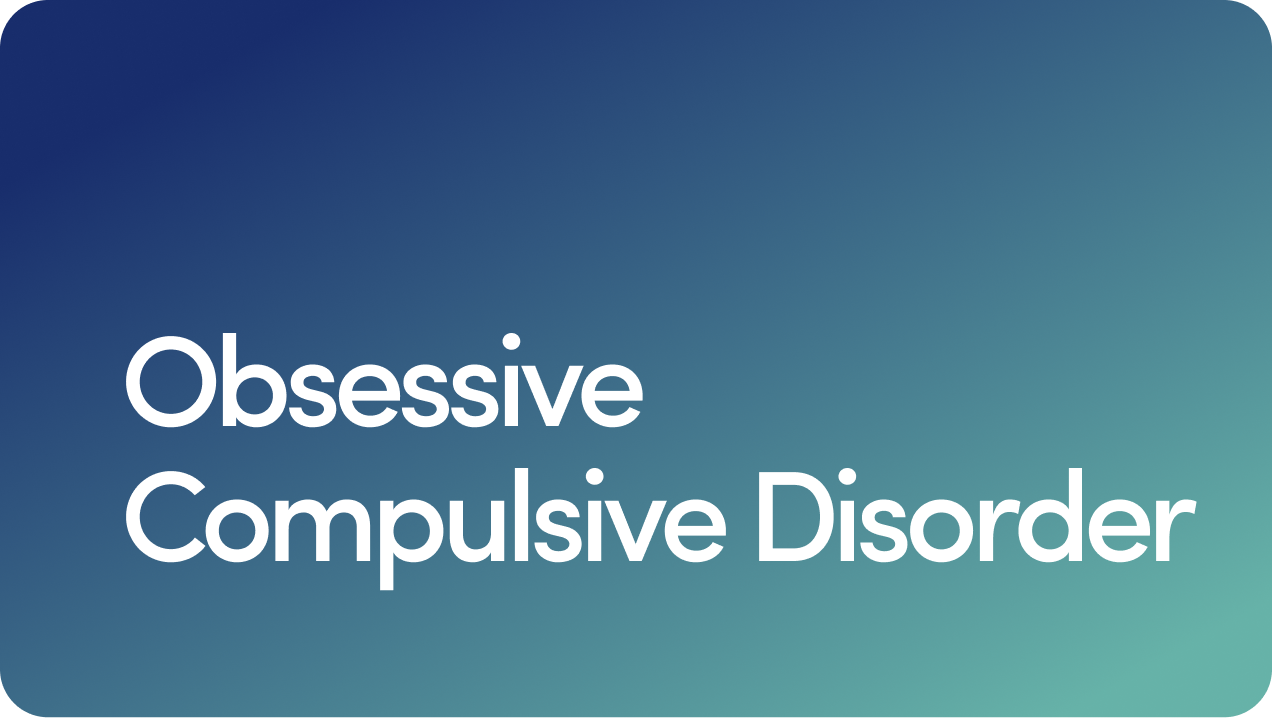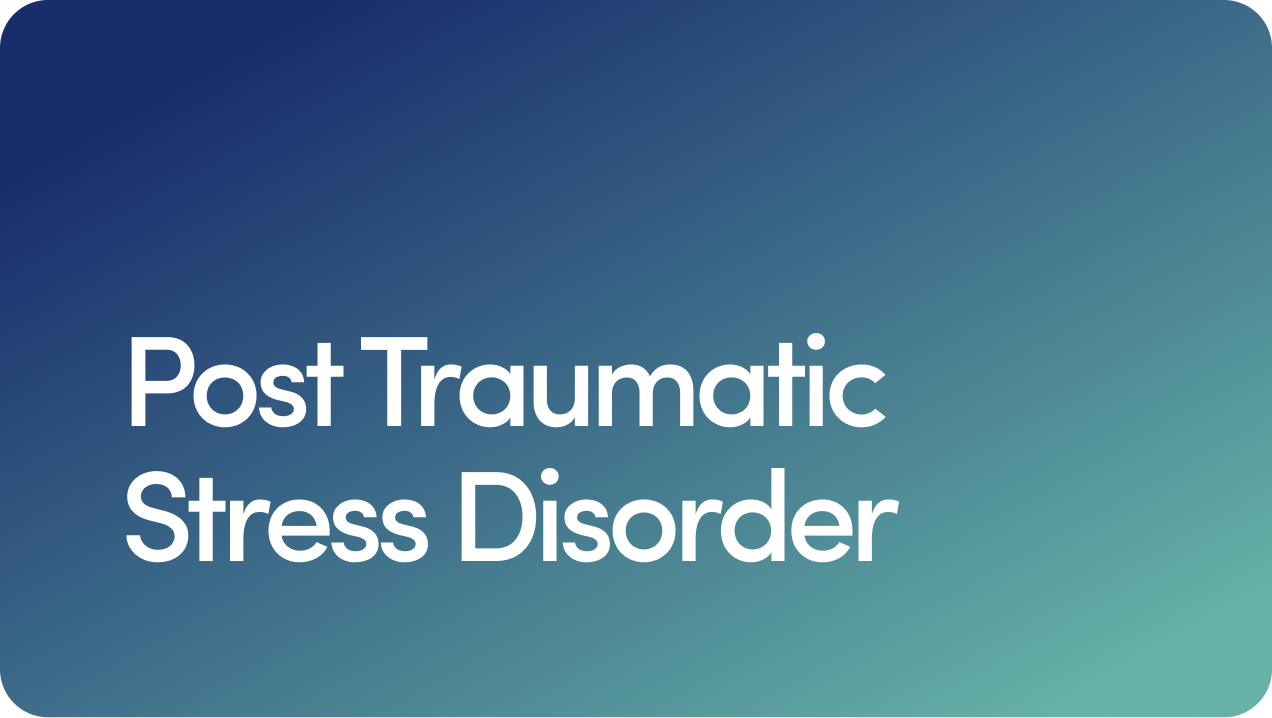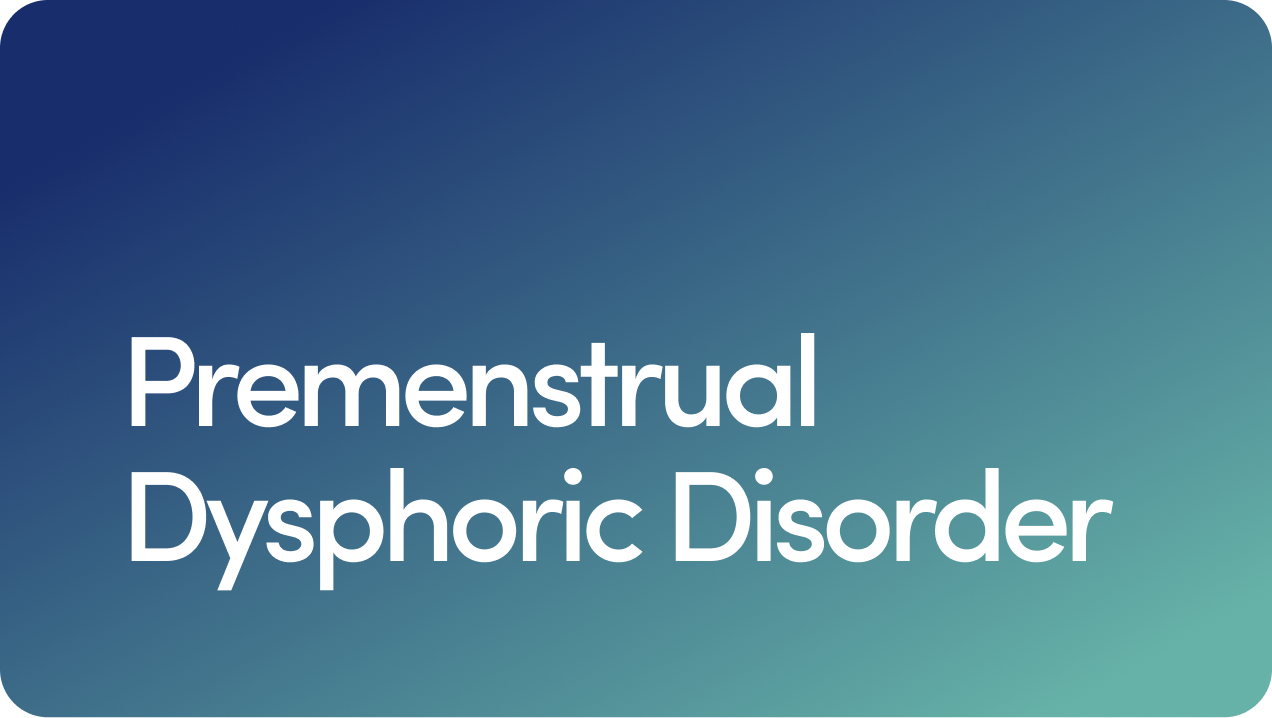Content
Free Mental Health Assessment
Alternatives to Xanax

If you get extremely nervous before an interview or struggle to go about routine activities, you may be one of the many people who deal with anxiety.
A common problem that affects many different people, about 31 percent of people in the U.S. experience some form of anxiety disorder in their lives at some point.
Most of the time, anxiety disorders is often treated using options such as anti-anxiety medications such as Xanax®.
Although a popular anti-anxiety medication, taking Xanax can have serious risks and drawbacks. There are alternatives to Xanax for anxiety, however.
Content

What Is Xanax?
Alprazolam, the active ingredient in Xanax, is used as a short-term treatment for anxiety disorders and panic disorders (sudden, unexpected attacks of extreme fear). It may also be used to treat depression, premenstrual symptoms or agoraphobia (the fear of open or crowded spaces).
With more than 48 million prescriptions in 2013, Xanax is one of the most commonly prescribed psychotropic medications.
A fast-acting drug, the effects of Xanax can be felt very soon after taking a dose, typically within two hours at most.
Xanax is in a class of medications called benzodiazepines that work like tranquilizers (or sedatives) to decrease abnormal excitement in the brain and calm someone down.
Benzodiazepines work by boosting levels of gamma-aminobutyric acid (GABA), a neurotransmitter or chemical messenger that transmits signals throughout your body.
GABA then slows down certain functions of your nervous system and lowers the severity of many anxiety symptoms. If your body doesn’t have enough GABA, you may feel anxious.
Side effects of Xanax can include, but are not limited to:
Drowsiness
Light-headedness
Headaches
Tiredness
Irritability
Dry mouth
Changes in sex drive
Nausea
Risks of Xanax
As with any medication, there can be certain potential medical risks involved with taking Xanax.
There are serious risks to using Xanax in combination with other medications, specifically opioids. Some examples are codeine or hydrocodone in cough medications, or fentanyl, hydromorphone, meperidine, methadone, morphine, oxycodone and tramadol in pain medications.
Taking Xanax with an opioid medication or alcohol can slow or stop your breathing, resulting in comas, sedation or overdose death.
Xanax is the second most common prescription medication involved in emergency room visits due to drug misuse.
The risks of Xanax prompted the Food and Drug Administration (FDA) to add a boxed warning — the most prominent drug safety warning — to benzodiazepines packaging.
Always talk to your healthcare provider if you are taking or plan to take certain opiate medications for a cough or pain when already taking Xanax, as well as any over-the-counter medications, including herbal supplements like St. John’s wort.
Reasons Not to Take Xanax
There are many recognized negative effects of taking Xanax, especially regarding long-term use. Taking Xanax can be habit-forming, leading to dependency or even addiction, and can cause negative health effects over time.
Like other benzodiazepines, Xanax works to slow down your brain and nervous system, leaving you feeling sleepy and relaxed. However, over time your body adapts to the effects and becomes dependent on how the drug interacts with your brain’s neurotransmitters.
It can only take a few weeks to develop a tolerance to Xanax meaning dependency can also develop quickly. People may feel the need to take more to achieve the desired effects.
Xanax can also have an increased risk of falls and broken bones.
Taking Xanax can lead to dependency and then withdrawal if you suddenly stop taking the drug, which can be life-threatening.
Stopping use can also lead to “rebound symptoms,” or symptoms that come back more severely if you suddenly stop taking Xanax.
Symptoms of Xanax withdrawal can be serious and include:
Depressed mood
Thoughts of suicide or self-harm
Confusion
Hostility
Hallucinations
Seizures
If you are already taking Xanax, talk to your healthcare provider before stopping use.
Although a fast-acting solution for anxiety, Xanax has downsides that make it not as ideal for long-term treatment.
However, there are plenty of other options to treat anxiety without using Xanax.
Whether you want to try another medication or go with a natural alternative, talk to a healthcare professional to find the best solution for you.
Medical Alternatives to Xanax
If you’ve been diagnosed or struggle with anxiety, there are plenty of medical alternatives to Xanax.
Medication can help you manage your symptoms and be able to function well and feel better in your daily life. You and your healthcare provider may need to try different medications before finding the right one for you.
SSRIs
Selective serotonin reuptake inhibitors (SSRIs) are generally used to treat depression but can also be effective for treating anxiety.
Low levels of serotonin are associated with mood disorders such as anxiety and depression. SSRIs work to increase the levels of serotonin in your brain by blocking your brain from reabsorbing existing serotonin, which then helps regulate your mood.
Some SSRIs can be prescribed to treat anxiety disorders. They include:
Fluoxetine (Prozac®)
Sertraline (Zoloft®)
Paroxetine (Paxil®)
Citalopram (Celexa®)
Escitalopram (Lexapro®)
For some people, SSRIs might not produce any significant improvement in their anxiety symptoms. Our guide to the side effects of SSRIs goes into more detail about what to expect if you’re prescribed an SSRI.
If you're already taking an SSRI, check out our blog: Can You Take Xanax With Lexapro?
SNRIs
Serotonin-norepinephrine reuptake inhibitors, or SNRIs, are a common type of antidepressant sometimes used to treat anxiety.
SNRIs work similarly to SSRIs by blocking the reabsorption of serotonin. Additionally, they also block the reabsorption of a different neurotransmitter called norepinephrine which contributes to the symptoms of anxiety.
Research shows that norepinephrine influences the brain and regulates systems in the body involved in heart rate, breathing and blood flow to the muscles.
Using SNRIs has shown to be effective for people dealing with anxiety.
Some SNRIs that may be prescribed to treat anxiety are:
Desvenlafaxine (Pristiq®). An SNRI antidepressant used as a treatment for depression, desvenlafaxine may also be prescribed to treat anxiety as well as certain symptoms in menopausal women.
Duloxetine (Cymbalta®). Prescribed to treat depression and generalized anxiety disorder, duloxetine is one of the most widely prescribed medications.
Venlafaxine (Effexor®). Venlafaxine is an SNRI prescribed to treat depression and numerous anxiety disorders, including generalized anxiety disorder (GAD), social anxiety disorder (SAD) and panic disorder.
SNRIs tend to cause more side effects than SSRIs. However, the side effects of SNRIs are generally mild and often disappear after several weeks of use.
Tricyclics
Tricyclic antidepressants (TCAs) are an older class of medications thought to work similarly to SSRIs by preventing serotonin and norepinephrine from being reabsorbed by the brain.
Certain TCAs can work as well as SSRIs do for treating most anxiety disorders.
Examples of TCAs used for anxiety include:
Clomipramine (Anafranil®)
Imipramine (Tofranil®)
Amitriptyline
Doxepin
Because TCAs are older drugs, there are often more side effects than newer SSRI and SNRI medications. These side effects can include dizziness, drowsiness, nausea, confusion, blurred vision and more.
Buspirone
Buspirone (formerly branded as BuSpar®) is an antidepressant used to treat depression, seasonal affective disorder and both short-term and chronic (or long-lasting) anxiety.
While the mechanics are not fully understood, it’s thought to affect mood-regulating chemicals in the brain without the same sedative effect as benzodiazepines, making Buspirone a preferable alternative to Xanax for anxiety.
Side effects can include dizziness, nausea and headaches. Buspirone is effective for many people but can take three to four weeks to start producing improvements.
Read more about BuSpar vs. Xanax here.
Beta-Blockers
Beta-blockers are medications that lower your heart rate and promote relaxation. They’re typically used to treat rapid heart rate (tachycardia), high blood pressure (hypertension) and other cardiovascular issues.
Taking a beta-blocker is a quick, simple way to treat the physical symptoms of anxiety and may be prescribed for stressful situations, such as attending a party or giving a speech.
However, this medication doesn’t treat the psychological symptoms of anxiety, such as feelings of worry or fear.
One beta-blocker that’s often used to treat the physical symptoms of anxiety is propranolol (sold as Inderal®).
Our guide to propranolol for performance anxiety explains how it works, as well as how it’s commonly used as an as-needed anxiety treatment.
Beta-blockers don’t typically cause side effects in everyone. However, some possible side effects can include dizziness, drowsiness, fatigue, cold fingers and toes, trouble sleeping and nausea.
Natural Alternatives to Xanax
If you’re searching for non-medical options, there are many natural alternatives to Xanax for anxiety.
The benefits of taking natural Xanax substitutes for anxiety instead of drugs is that they’re usually not habit-forming and pose little to no threat of dangerous side effects or overdose.
Exercise
Exercise, particularly high-intensity exercise, can help reduce stress and improve your sense of well-being, according to the Anxiety and Depression Association of America.
Stay physically active by taking a walk around your neighborhood, going for a bike ride, taking a yoga class or trying an intense workout.
Mindfulness
Research has found that anxiety often improves with meditation. Many people turn to meditation and practicing mindfulness as an alternative to Xanax and other medications for anxiety symptoms.
Even a few minutes each day to focus on deep breathing and relaxation can help calm your mind. Mindfulness can be a beneficial alternative to Xanax for anxiety, especially when combined with other natural alternative solutions.
Quitting Smoking
While nicotine in cigarettes can have an immediate calming effect — it’s only temporary and anxiety usually returns. Giving up smoking will not only help your anxiety in the long term but will also improve your overall physical and mental health.
L-Theanine
An amino acid naturally found in green tea, black tea and certain types of mushrooms, L-theanine has many mental and mood-related benefits.
In a systematic review, researchers found that L-theanine supplements could reduce acute stress and anxiety in stressful situations. Researchers also found in a 2020 review that taking 200mg to 400mg of L-theanine supplements a day could reduce anxiety symptoms.
You can buy it as a supplement typically in capsule form, and as a popular tea that you can brew whenever you’re feeling stressed or anxious.
Chamomile
Taking a chamomile supplement or sipping on chamomile tea can help relax you. A 2016 study found that participants with generalized anxiety disorder reported reduced anxiety symptoms after taking 500-milligram chamomile supplements three times per day every day.
Chamomile is a popular tea you can drink or it can be found as a supplement, usually in capsule form online or in stores. Hers’ Mind Unwind Calm Drops contain chamomile.
Magnesium
Magnesium is an essential mineral involved in over 300 enzyme systems in your body, according to the National Institutes of Health.
Magnesium has multiple health benefits and has been linked to improving mental health disorders such as depression and anxiety. One study involving over 8,800 adults found a connection between depression and low levels of magnesium intake.
A 2017 study found that magnesium supplements improved anxiety symptoms in adults with depression.
You can take magnesium as a supplement or it can be found in many foods such as pumpkin seeds, almonds, cashews, leafy vegetables, chia seeds and beans.
Omega-3’s
Found in seafood, nuts, seeds and plant oils, omega-3 fatty acids reduce triglycerides (a type of lipid, or fat, found in your blood).
Research suggests that omega-3 fatty acids could reduce severe anxiety disorders.
Several clinical studies have shown that those diagnosed with depression or anxiety displayed significantly lower levels of omega-3 fatty acids.
Similarly, in a 2018 systematic review by the JAMA Network, researchers found a connection between lower anxiety levels and omega-3 fatty acid intake over 19 different clinical trials involving over 2,200 people.
Supplementing with omega-3s may be effective for some people who are affected by anxiety and depression.
However, some prescription medications may not be safe to use with omega-3 supplements. Talk to your healthcare provider before using fish oil or other omega-3 supplements.
Psychotherapy
Like other mental health disorders, anxiety often improves with psychotherapy and could be a resourceful alternative to Xanax for anxiety.
Several types of psychotherapy are used to treat anxiety, including cognitive behavioral therapy (CBT), which involves learning new ways to think and react to situations that cause anxiety.
You can ask your primary care provider for a mental health referral or use our online psychiatry service to talk to a licensed psychiatry provider from home.
The Bottom Line on Xanax for Anxiety
While Xanax provides instant relief for anxiety symptoms, there are serious risks associated with taking it. If you are already taking Xanax, do not try to quit cold turkey. Talk to your healthcare provider before you stop taking Xanax.
There are alternatives to Xanax for treating anxiety, including alternative medications, therapy and lifestyle changes you can implement to stay in control of your symptoms.
A combination of natural alternatives to Xanax may be enough to treat mild anxiety. But if you’re struggling with severe anxiety, don’t be afraid to reach out for professional help.
Anxiety is a very common condition that takes time and the right combination of treatments to work through but can be managed.
29 Sources
Hims & Hers has strict sourcing guidelines to ensure our content is accurate and current. We rely on peer-reviewed studies, academic research institutions, and medical associations. We strive to use primary sources and refrain from using tertiary references.
- Kessler, R. C., Chiu, W. T., Demler, O., Merikangas, K. R., & Walters, E. E. (2005). Prevalence, severity, and comorbidity of 12-month DSM-IV disorders in the National Comorbidity Survey Replication. Archives of general psychiatry, 62(6), 617–627. Retrieved from https://www.ncbi.nlm.nih.gov/pmc/articles/PMC2847357/
- Alprazolam. (2021, May 15). MedlinePlus. Retrieved from https://medlineplus.gov/druginfo/meds/a684001.html
- Ait-Daoud, N., Hamby, A. S., Sharma, S., & Blevins, D. (2018). A Review of Alprazolam Use, Misuse, and Withdrawal. Journal of addiction medicine, 12(1), 4–10. Retrieved from https://www.ncbi.nlm.nih.gov/pmc/articles/PMC5846112/
- Reissig, C. J., Harrison, J. A., Carter, L. P., & Griffiths, R. R. (2015). Inhaled vs. oral alprazolam: subjective, behavioral and cognitive effects, and modestly increased abuse potential. Psychopharmacology, 232(5), 871–883. Retrieved from https://www.ncbi.nlm.nih.gov/pmc/articles/PMC4326558/
- Benzodiazepines (and the alternatives). (2020, September 27). Harvard Health. Retrieved from https://www.health.harvard.edu/mind-and-mood/benzodiazepines_and_the_alternatives
- Benzodiazepines and Opioids. (2022, April 21). National Institute on Drug Abuse. Retrieved from https://nida.nih.gov/drug-topics/opioids/benzodiazepines-opioids
- Lydiard R. B. (2003). The role of GABA in anxiety disorders. The Journal of clinical psychiatry, 64 Suppl 3, 21–27. Retrieved from https://pubmed.ncbi.nlm.nih.gov/12662130/
- Hepsomali, P., Groeger, J. A., Nishihira, J., & Scholey, A. (2020). Effects of Oral Gamma-Aminobutyric Acid (GABA) Administration on Stress and Sleep in Humans: A Systematic Review. Frontiers in neuroscience, 14, 923. Retrieved from https://www.ncbi.nlm.nih.gov/pmc/articles/PMC7527439/
- FDA expands Boxed Warning to improve safe use of benzodiazepine drug. (2020, October 2). US Food and Drug Administration. Retrieved from https://www.fda.gov/drugs/drug-safety-and-availability/fda-requiring-boxed-warning-updated-improve-safe-use-benzodiazepine-drug-class
- Brett, J., & Murnion, B. (2015). Management of benzodiazepine misuse and dependence. Australian prescriber, 38(5), 152–155. Retrieved from https://www.ncbi.nlm.nih.gov/pmc/articles/PMC4657308/
- Chu, A., & Wadhwa, R. (2022, January 11). Selective Serotonin Reuptake Inhibitors - StatPearls. NCBI. Retrieved from https://www.ncbi.nlm.nih.gov/books/NBK554406/
- Selective Serotonin Reuptake Inhibitors (SSRIs) Information FDA. (2014, December 23). US Food and Drug Administration. Retrieved from https://www.fda.gov/drugs/information-drug-class/selective-serotonin-reuptake-inhibitors-ssris-information
- Silverstone P. H. (2004). Qualitative review of SNRIs in anxiety. The Journal of clinical psychiatry, 65 Suppl 17, 19–28. Retrieved from https://pubmed.ncbi.nlm.nih.gov/15600378/
- Frodl, T., Scheuerecker, J., Schoepf, V., Linn, J., Koutsouleris, N., Bokde, A. L., Hampel, H., Möller, H. J., Brückmann, H., Wiesmann, M., & Meisenzahl, E. (2011). Different effects of mirtazapine and venlafaxine on brain activation: an open randomized controlled fMRI study. The Journal of clinical psychiatry, 72(4), 448–457. Retrieved from https://pubmed.ncbi.nlm.nih.gov/20868630/
- Montoya, A., Bruins, R., Katzman, M. A., & Blier, P. (2016). The noradrenergic paradox: implications in the management of depression and anxiety. Neuropsychiatric disease and treatment, 12, 541–557. Retrieved from https://www.ncbi.nlm.nih.gov/pmc/articles/PMC4780187/
- Desvenlafaxine. (2022, January 15). MedlinePlus. Retrieved from https://medlineplus.gov/druginfo/meds/a608022.html
- Duloxetine (marketed as Cymbalta) Information FDA. (2014, December 15). US Food and Drug Administration. Retrieved from https://www.fda.gov/drugs/postmarket-drug-safety-information-patients-and-providers/duloxetine-marketed-cymbalta-information
- Venlafaxine (marketed as Effexor) Information FDA. (2015, July 10). US Food and Drug Administration. Retrieved from https://www.fda.gov/drugs/postmarket-drug-safety-information-patients-and-providers/venlafaxine-marketed-effexor-information
- Moraczewski, J., & Aedma, K. K. (2021, November 30). Tricyclic Antidepressants - StatPearls. NCBI. Retrieved from https://www.ncbi.nlm.nih.gov/books/NBK557791/
- BuSpar. (n.d.). Accessdata.fda.gov. Retrieved from https://www.accessdata.fda.gov/drugsatfda_docs/label/2010/018731s051lbl.pdf Otto, M. W., & Smits, J. A. (2021, March 13). Exercise for Stress and Anxiety. Anxiety and Depression Association of America, ADAA. Retrieved from https://adaa.org/living-with-anxiety/managing-anxiety/exercise-stress-and-anxiety
- Meditation: In Depth NCCIH. (n.d.). National Center for Complementary and Integrative Health. Retrieved from https://www.nccih.nih.gov/health/meditation-in-depth
- Anxiety & Smoking. (n.d.). Smokefree.gov. Retrieved from https://smokefree.gov/challenges-when-quitting/cravings-triggers/anxiety-smoking
- Dufficy, et al. (2016, April 23). Theanine consumption, stress and anxiety in human clinical trials: A systematic review. Journal of Nutrition & Intermediary Metabolism. Retrieved November 22, 2021, from https://www.sciencedirect.com/science/article/pii/S2352385915003138
- Mao, J. J., Xie, S. X., Keefe, J. R., Soeller, I., Li, Q. S., & Amsterdam, J. D. (2016). Long-term chamomile (Matricaria chamomilla L.) treatment for generalized anxiety disorder: A randomized clinical trial. Phytomedicine : international journal of phytotherapy and phytopharmacology, 23(14), 1735–1742. Retrieved from https://www.ncbi.nlm.nih.gov/pmc/articles/PMC5646235/ Magnesium - Health Professional Fact Sheet. (2022, March 1). NIH Office of Dietary Supplements. Retrieved from https://ods.od.nih.gov/factsheets/Magnesium-HealthProfessional/
- Tarleton, E. K., & Littenberg, B. (2015). Magnesium intake and depression in adults. Journal of the American Board of Family Medicine : JABFM, 28(2), 249–256. Retrieved from https://pubmed.ncbi.nlm.nih.gov/25748766/
- Tarleton, E. K., Littenberg, B., MacLean, C. D., Kennedy, A. G., & Daley, C. (2017). Role of magnesium supplementation in the treatment of depression: A randomized clinical trial. PloS one, 12(6), e0180067. Retrieved from https://www.ncbi.nlm.nih.gov/pmc/articles/PMC5487054/
- Larrieu, T., & Layé, S. (2018). Food for Mood: Relevance of Nutritional Omega-3 Fatty Acids for Depression and Anxiety. Frontiers in physiology, 9, 1047. Retrieved from https://www.ncbi.nlm.nih.gov/pmc/articles/PMC6087749/
- Su, K. P., Tseng, P. T., Lin, P. Y., Okubo, R., Chen, T. Y., Chen, Y. W., & Matsuoka, Y. J. (2018). Association of Use of Omega-3 Polyunsaturated Fatty Acids With Changes in Severity of Anxiety Symptoms: A Systematic Review and Meta-analysis. JAMA network open, 1(5), e182327. Retrieved from https://www.ncbi.nlm.nih.gov/pmc/articles/PMC6324500/
- NIMH » Any Anxiety Disorder. (n.d.). National Institute of Mental Health. https://www.nimh.nih.gov/health/statistics/any-anxiety-disorder
This article is for informational purposes only and does not constitute medical advice. The information contained herein is not a substitute for and should never be relied upon for professional medical advice. Always talk to your doctor about the risks and benefits of any treatment. Learn more about our editorial standards here.
Kristin Hall, FNP
Education
BSN - University of Missouri, 1997
MSN - Saint Louis University, 1999
Training
Family Nurse Practitioner Internship - Saint Louis University, 1999
Medical Licenses
Registered Nurse, Missouri (Multi-State), 1997
Registered Nurse, Alaska, 2023
Registered Nurse, California, 2023
Registered Nurse, Connecticut, 2023
Registered Nurse, District of Columbia, 2023
Registered Nurse, Hawaii, 2023
Registered Nurse, Illinois, 2011
Registered Nurse, Massachusetts, 2023
Registered Nurse, Michigan, 2023
Registered Nurse, Minnesota, 2023
Registered Nurse, Nevada, 2023
Registered Nurse, New York, 2023
Registered Nurse, Oregon, 2023
Registered Nurse, Washington, 2022
APRN, Certified Nurse Practitioner, Missouri, 2000
APRN, Certified Nurse Practitioner, Illinois, 2011
APRN, Certified Nurse Practitioner, North Dakota, 2024
APRN, Certified Nurse Practitioner, Oregon, 2023
APRN, Certified Nurse Practitioner, Rhode Island, 2024
Board Certifications
Family Nurse Practitioner - American Nurses Credentialing Center, 2000
Other Certificates & Certifications
Lean Six Sigma, Green Belt Certification, 2015
Diabetic Mapping Certification Expert, 2012
BLS/CPR Certification, 2025
Affiliations & Memberships
Specialties & Areas of Focus
Family Practice Medicine, specializing in chronic disease management (diabetes, hypertension, obesity). Additional support and treatment of mental health diagnosis and men’s and women’s health.
Years of Experience:
25
Why I Practice Medicine
Caring for the whole person—understanding that true health extends beyond physical symptoms—has always been central to my work. As a nurse and family nurse practitioner, I’m passionate about empowering individuals to live their healthiest lives, physically, emotionally, and socially. Delivering compassionate, comprehensive care is not only my profession—it’s my purpose.
Hobbies & Interests
In my spare time, I enjoy staying active and connected to nature through skiing, hiking, and spending time outdoors. I’m also an avid St. Louis Cardinals baseball fan and find joy in reading, sewing, baking, and creative hobbies that keep me inspired outside of work.
LinkedIn:
Related Articles
Depression Medications: A Complete Guide
Written by Taylor Trudon
Published November 16, 2023
Medication for Anxiety: A Complete Guide
Written by Geoffrey C. Whittaker
Published November 3, 2023
Selective Serotonin Reuptake Inhibitors (SSRIs): A Complete Guide
Written by Nicholas Gibson
Published November 16, 2023
Related Conditions
 Anxiety
Anxiety
 Depression
Depression
 OCD
OCD
 PTSD
PTSD
 Bipolar Disorder
Bipolar Disorder
 Premenstrual Dysphoric Disorder
Premenstrual Dysphoric Disorder